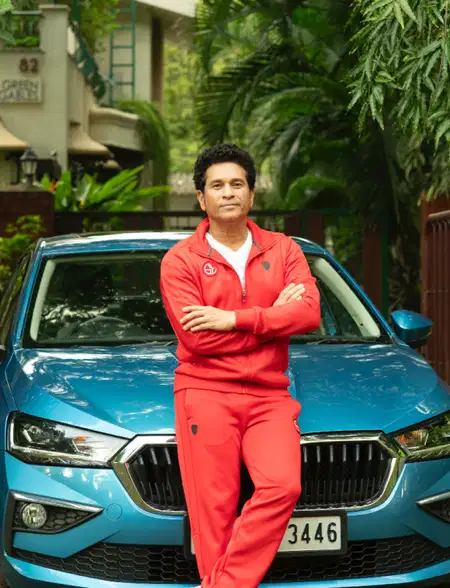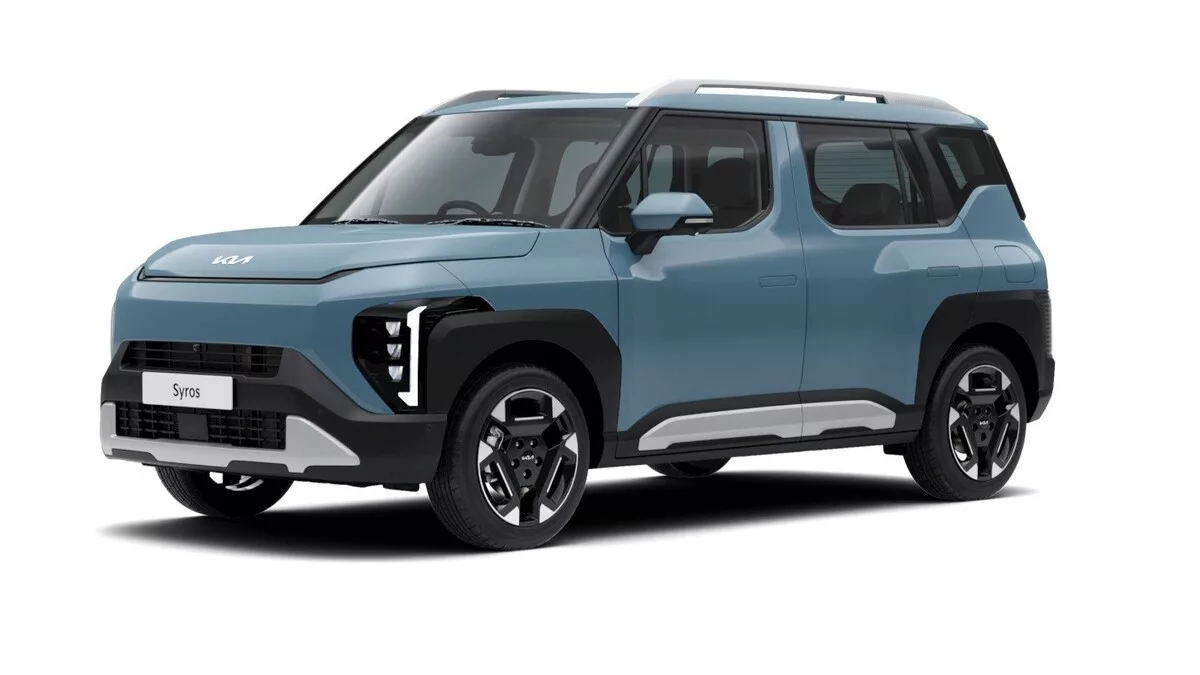These days, we have tons of options to choose from when buying a new car. You can set your preferences according to anything from price to fuel type, down to even tyre size for any given segment. But have you ever wondered what the car segments are? How does one differentiate between an SUV, a Pickup, or an MPV? What car segment suits a family of six best?
Such questions can put a prospective buyer like you in a dilemma. Let’s take a look at the different car segments available in India and which segment is suited for different price ranges and lifestyles.
Also Read – SUV Cars In India
- What is a Car Segment?
- How to Choose a Car Segment?
- Car Segments in India
- A Segment – Hatchbacks
- B Segment – Premium Hatchbacks, Compact SUVs and Compact Sedans
- C Segment – Mid-Size Sedans and SUVs
- D Segment – Large Sedans and SUVs
- E Segment – Executive Luxury Cars
- F Segment – High-End Luxury Cars
- J Segment – Sports Utility, Offroading and Pickups
- M Segment – Multipurpose Vehicles (MPVs)
- S Segment – Sports Cars
- Car Segments In India: Summary
- FAQs on Car Segments in India
What is a Car Segment?
Cars come in all shapes and sizes these days. To help differentiate between such different types of cars, governments and private organizations have developed a classification to split them into different car segments. Basically, it’s a way of categorizing cars based on their size and length. That way, one can easily set their eyes on a particular segment that suits them best. This helps minimize the time it takes to look at potential cars to consider.
How to Choose a Car Segment?
Choosing an appropriate car segment that suits you best can make your life a lot easier after buying a new car. Hence, evaluating each segment according to your needs is important before finalizing one or two segments. Generally, it is wise to assess car segments based on three factors: family size, budget, and lifestyle.
Family Size
The size of your family matters a lot when choosing a new car. If you live alone or with only one or two family members, perhaps a smaller car would seem more feasible. For a family of 4 to 5 people, an SUV or a Sedan makes the most sense. A hatchback can accommodate five people without much trouble, but it might not always have the ability to carry the luggage of as many people. For a family of 6, 7, or 8 people, a three-row SUV or an MPV can accommodate them all without causing the need for a second vehicle.
While a smaller family can certainly get a bigger car to enjoy all the extra space they can, the overall cost of buying and driving a bigger car can be a lot more than that of a hatchback. As a result, the bigger car loses value for its money in this case. Similarly, a smaller car like a hatchback would fail to accommodate a bigger family, let alone any luggage for longer trips.
Price
Different companies develop different products, and their prices can vary from each other extremely. However, a general rule of thumb is that the bigger the car, the more expensive it tends to be. You will see that hatchbacks are usually the most economical, while large SUVs and MPVs cost twice as much, or even more, in some cases. There is an exception of sports cars and luxury cars, in which case, they may be smaller than SUVs, but cost a lot more thanks to the level of luxury and/or the powerful engine under their hoods.
Budget is one of the first factors people finalize before buying a new car. It guides their research, ensuring they focus on vehicles within their reach. This helps them save valuable time by avoiding unrealistic options, no matter how tempting they might appear.
Lifestyle
Lifestyle also plays a massive role in deciding on a new car. Your lifestyle would help decide the general usage of your new car, and that can help finalize a car segment before looking at individual products. For someone living a somewhat prudent lifestyle and looking for a daily driver for their work transportation, a smaller car with high mileage would fare best.
On the other hand, the extravagant person frequently going on long trips with friends or family would not regret owning an automatic SUV for the extra space and a relaxed driving experience. Similarly, you can associate different segments with different lifestyles.
Car Segments in India
You’ve likely encountered terms like “SUV” and “MPV”, but what exactly are they? What makes an SUV different from an Off-roader or an MPV? Here’s a list of all nine car segments in India, what they are, and what kind of cars they include.
A Segment – Hatchbacks

Compact hatchbacks are the most economical and among the smallest cars available on the market. Typically boasting five-door cars, the fifth one being the rear door opening up to access the boot. These cars are ideal for people who want an affordable car best suited for city driving. While affordability remains a key selling point, many hatchbacks now come equipped with surprising comfort and convenience features, catering to modern needs.
Some of the most popular A-segment cars in India are hatchbacks like the Maruti Alto, Hyundai i10, Tata Tiago, Maruti Celerio, and Tata Nano. You will usually find these cars under the Rs. 10 Lakh price range, with some top-range models crossing that threshold by some margin.
Also Read – Hatchback vs Sedan
B Segment – Premium Hatchbacks, Compact SUVs and Compact Sedans

Along with A Segment, the B Segment consists of some of the most popular cars in India right now. These include three different types of cars: Premium Hatchbacks, Compact SUVs, and Compact Sedans. Premium Hatchbacks are usually slightly bigger than compact hatchbacks, but not by much. These are essentially hatchbacks with more luxury, comfort, and tech features. Cars like the Tata Altroz, Hyundai i20, Maruti Baleno, Maruti Swift, Volkswagen Polo, Tata Tiago EV, and Citroen C3 fill this category. These usually range from Rs. 6 to 12 Lakh.
These days, you can throw a rock on a busy road (you really shouldn’t, this is hypothetical) and probably hit a Compact SUV. Compact SUVs have similar length, width, and wheelbase to hatchbacks but boast higher ground clearance, height, and boot space. You can classify cars like the Hyundai Venue, Kia Sonet, Nissan Magnite, Maruti Brezza, Mahindra XUV300, and Tata Nexon as compact SUVs.
Sedans stand out compared to Hatchbacks and SUVs, specifically from the side, thanks to the elongated trunk they get. These cars provide extra legroom but can come up a bit short in the headroom and ground clearance area. Sedans can carry plenty of luggage and are designed for comfort and a livelier driving experience. Compact Sedans retain the overall shape but lose a few inches in the length department. In this segment, you will find cars like the Maruti Suzuki DZire, Honda Amaze, Hyundai Aura, and Tata Tigor.
Also Read – Compact SUV In India
C Segment – Mid-Size Sedans and SUVs

Next is the C segment, which covers the mid-sized sedans and the SUVs. The mid-size sedans segment consists of cars like the Honda City, Skoda Slavia, Volkswagen Virtus, Maruti Ciaz, and Hyundai Verna. Compared to compact sedans, mid-size sedans boast a longer wheelbase, overall length, and more premium features. The addition of ADAS in modern Indian cars also applies to this segment, thanks to the new facelifted Hyundai Verna and Honda City. These cars typically range from Rs. 10 to 20 lakh, with the top variants full of all the bells and whistles in the comfort and convenience departments.
The Midsize SUV segment is also sought after by a good majority of Indians. You get the likes of Tata Harrier, Skoda Kushaq, MG Astor, Volkswagen Taigun, Hyundai Creta, Maruti Grand Vitara, and Kia Seltos, among others in this segment. Mid-size SUVs offer even more length, width, and height compared to compact SUVs and provide a comfortable ride for long journeys. The above-mentioned trending names in the market offer a fantastic blend of premium features and accessibility thanks to sensible pricing due to tight competition.
Also Read – DCT vs CVT
D Segment – Large Sedans and SUVs

The D segment consists of some of the largest cars in the market. These large sedans and full-size SUVs offer abundant space, be it for the passengers or the cargo. In the large sedans sub-segment, you will find cars like the Audi A4, Toyota Camry, Mercedes-Benz C-Class, and BMW i4. Their prices can range too widely depending on the brand and its product, but expect a starting price of around Rs. 40 lakh for these large sedans.
The full-size SUV department can be slightly forgiving in the pricing department, but they bring a lot of space to the table. Here, you get the likes of Tata Safari, Mahindra XUV700, Jeep Meridian, MG Hector, Hyundai Alcazar, Volkswagen Tiguan, and Toyota Fortuner, among others. These cars have an undeniable road presence and give the driver that ‘king-of-the-road’ feeling due to the high seating position and large size. The D Segment cars generally come equipped with the most premium features and the latest safety tech available in the market.
Also Read – 4WD vs AWD
E Segment – Executive Luxury Cars

Executive luxury cars offer some of the most comfortable rides in the market. We enter the fully luxurious department with the E segment cars such as the Audi A6, Audi A8, BMW 5-Series, Mercedes-Benz E-Class, and Lexus ES. Not only are the E Segment cars high in luxury, but they also usually feature a powerful engine to go along.
Forget the driver’s seat – these automobiles prioritize the ultimate VIP experience for passengers, cradling them in luxury from the moment they step inside. These chauffeur-driven rides offer passengers an oasis of comfort and control over the car’s infotainment, lighting, and other amenities. If you want to feel like owning a car that oozes luxury inside and out but you do not want to spend an extravagant amount after it, perhaps you can consider one of these cars, since they do not generally cross the Rs 1 Crore mark. However, you can certainly expect the cars in the next segment to cost seven digits.
Also Read – Luxury Cars In India
F Segment – High-End Luxury Cars

The high-end luxury cars are among the best in the business in terms of the automotive craft of luxury on wheels. Here, you can count the likes of a Rolls-Royce or a Bentley. Luxury flagships like the Mercedes-Benz S-Class and Lexus LS, along with the BMW i7 and the Audi e-Tron GT, fall in this category.
You get the ultimate combination of luxury, comfort, style, and power in one of these cars, and owning (and maintaining) them costs a fortune. Apart from the best amenities, you can also count on these cars having the best and latest safety tech available to the people, and their build quality is something you can rely on.
J Segment – Sports Utility, Offroading and Pickups

The J segment consists of cars that not everybody uses but are super useful to those who require them. Off-roading and sports utility vehicles are perfect for people who want to wander beyond the traditional paved roads. Off-roading vehicles provide unmatched levels of grip, traction, and the ability to overcome big obstacles on the way with the help of high ground clearance, high approach, departure, and break-over angles, and the latest technology, driving each wheel optimally. Cars like the Jeep Wrangler, Mahindra Thar, and Suzuki Jimny are good examples of off-roading and sports utility cars.
Pickup trucks look like SUVs from the front but feature huge beds behind the front row (and sometimes second row) seats. These are best for hauling cargo loads or transporting something large that a conventional SUV cannot carry. Isuzu makes multiple pickup trucks like the V-Cross, D-Max, and the S-Cab that are available in India. The Toyota Hilux and Mahindra Bolero Camper are also a part of this segment.
M Segment – Multipurpose Vehicles (MPVs)

MPVs, also known as ‘People Movers’, are best for carrying multiple people at the same time. You might have problems fitting more than 5 or 6 people in the largest of SUVs. But MPVs usually have more than two rows of seats and can comfortably seat 6, 7, or even more people. Look no further than cars like the Maruti Eeco, Kia Carens, Kia Carnival, Toyota Vellfire, Toyota Innova, Maruti Ertiga, and Renault Triber if you want to look at some of the MPVs available in India.
Thanks to three rows of seats, these cars make for ideal cars for big families or a group of friends looking to travel under the same roof. The prices and luxury of MPVs are spread across a vast spectrum, with the affordable and efficient Maruti Eeco and Renault Triber on one end and the ultra-pricey and ultra-luxurious Toyota Vellfire on the other.
S Segment – Sports Cars

These cars are the cream of the crop when it comes to performance. These cars throw caution to the wind in terms of efficiency, practicality, and utility. But they do more than makeup for it in the performance area. Most sports cars are coupes that can seat up to two people and come with a powerful engine. These cars are expensive to own and maintain, and their prices vary on brand and the calibre of their performance. But they offer their money’s worth with a driving experience like nothing else in the market.
Cars like the BMW Z4, M2, Porsche 718, 911, Aston Martin DB-series, and Mercedes-AMG GT all fall under the S Segment of cars. These cars turn heads and can announce their arrival beforehand thanks to the loud roars of their 4, 6, 8, 10, or even 12-cylinder engines. Forget about kilometres per litre, these beasts are all about smiles per mile.
Car Segments In India: Summary
And there you have it. There are so many different types of cars available in the market that it can get a bit overwhelming for many. Dividing these cars into segments can make it easy for us to identify and check out only the cars suitable for our requirements.
FAQs on Car Segments in India
What segment consists of the most affordable cars in the market?
Usually, the A-Segment consists of some of the most affordable cars on the market: compact hatchbacks. Maruti Alto, Renault Kwid, Tata Tiago, and Maruti Celerio are some of the cheapest cars available today.
Is there a segment specifically for electric cars?
While you may classify some cars into different segments based on their powertrain, it’s decided based on their engine size rather than fuel type. So the answer is no; electric cars do not get a dedicated segment but are divided into multiple segments based on their size, shape, and primary usage.
What is the difference between C-segment and D-segment SUVs?
D-segment SUVs are among the largest SUVs on offer, and they provide a very spacious interior for maximum comfort and a large cargo bay. C-segment SUVs are smaller than these large SUVs but bigger than compact SUVs. C-segment mid-size SUVs provide a good balance of cargo space and affordability and bring the best of both worlds in a single package.
Which segment(s) includes some of the most fuel-efficient cars?
Cars from the A-segment usually have the least powerful and, as a result, most efficient engines on the market. Along with the A-segment, the B-segment and C-segment also include various cars with CNG kits or hybrid engines, which offer phenomenal mileage.
Important Links
Used Hatchback Cars in Delhi-NCR | Used Hatchback Cars in Bangalore | Used Hatchback Cars in Hyderabad | Used Hatchback Cars in Pune | Used Sedan Cars in Delhi-NCR | Used Sedan Cars in Bangalore | Used Sedan Cars in Hyderabad | Used Sedan Cars in Pune | Used SUV Cars in Delhi-NCR | Used SUV Cars in Bangalore | Used SUV Cars in Hyderabad | Used SUV Cars in Pune





nice guide
Thanks a lot for your wonderful writeup.
Keep up this good work.
Thank You!
Very nicely brought out the difference between segments with factors to decide a car for oneself.